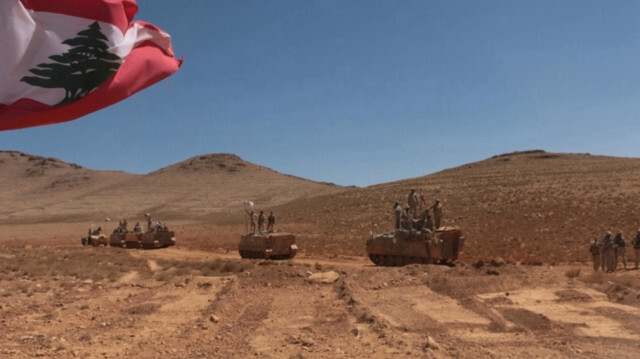
'Brotherly and friendly countries must exert necessary pressure to stop the Israeli provocations and aggressions against Lebanon,' premier says
Lebanon approved a comprehensive plan Thursday to counter possible repercussions on its infrastructure and public facilities from an escalation of tensions on its border with Israel.
The plan was approved during a Cabinet session chaired by caretaker Prime Minister Najib Mikati, according to a statement issued by the Prime Ministry.
Mikati said in his speech during the session that he held a meeting with the National Disaster and Crisis Management Authority to formulate the practical steps required to confront what might happen.
"We have agreed on a series of steps, based on which we will take appropriate decisions," he added, without providing further details.
“It is true that the war is still confined to the Gaza Strip, but what is happening in south Lebanon and the fall of martyrs day after day are things that must stop....Hence, our constant demand has been for the brotherly and friendly countries to exert the necessary pressure to stop the Israeli provocations and aggressions against Lebanon,” he added.
Media Minister Ziad Makari reassured citizens that the government is working to develop a preventive plan in case of war.
“The Cabinet approved the plan of the Ministry of Public Works and Transport and the Ministry of Health regarding disaster management,” Makari told reporters at the end of the session.
The Minister of Public Works and Transport, Ali Hamiyah, said: “We have prepared a plan to be fully prepared in terms of technical matters and financial requirements that requires the approval of the Council of Ministers.”
"Today, this plan was approved by the Council of Ministers so that the Ministry of Public Works will be prepared for any repercussions or any matters that could threaten the infrastructure of its important facilities.
"The plan concerns bridges, roads and the four commercial ports -- Sidon, Tyre, Beirut and Tripoli -- and Beirut-Rafic Hariri International Airport," he added.
Tensions are escalating on the Israeli-Lebanese border since the launch by the Palestinian group Hamas of Operation Al-Aqsa Flood on Oct. 7 and Israel’s subsequent attacks on the Gaza Strip.
Exchanges of fire between Hezbollah and the Israeli army has caused deaths and injuries on both sides.
Reuters journalist Issam Abdullah was killed by Israeli bombings and six journalists associated with international news agencies were injured earlier this month.
Hello, the comments you share on our site are a valuable resource for other users. Please respect other users and different opinions. Do not use rude, offensive, derogatory, or discriminatory language.
The floor is all yours.








